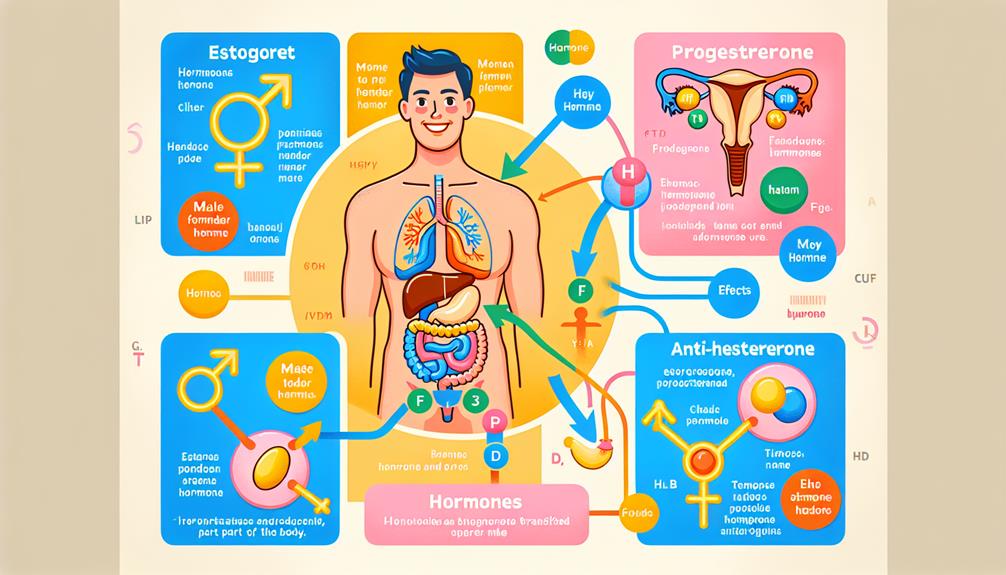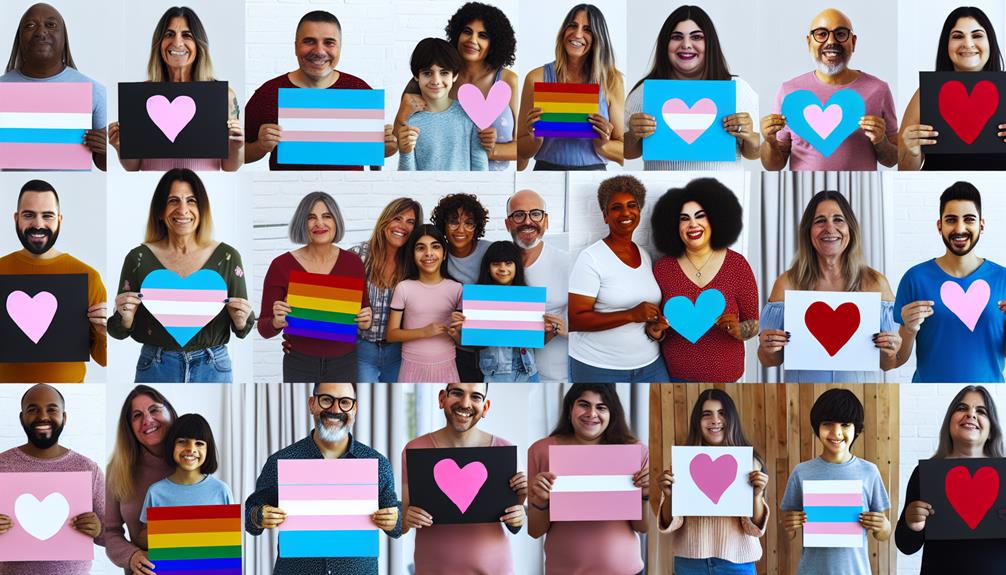
Sculpting more than just faces, discover the surprising layers of transformation awaiting beyond the surface of Facial Feminization Surgery.
Table of Contents
ToggleYou may have considered Facial Feminization Surgery (FFS) solely as a physical transformation, but what you didn’t realize goes beyond the surface. The impact of FFS extends deeply into mental health and social acceptance, reshaping not just appearances but also inner confidence and societal interactions. As you explore the layers of FFS, you will uncover the hidden facets that contribute to a more profound sense of self and belonging.
Key Insights
- FFS enhances mental well-being and self-confidence.
- FFS does not change internal gender identity.
- Subtle physical changes from FFS can soften facial features.
- FFS reduces discrimination and violence against trans individuals.
- FFS includes psychological and social support for holistic well-being.
Dora’s Deep Dive Podcast – What I Didn’t Realize About FFS
Prevalence of Mental Health Benefits
Improving mental well-being and fostering self-confidence, Facial Feminization Surgery (FFS) has been associated with a range of positive psychological outcomes for transgender individuals.
For those struggling with gender dysphoria, FFS offers a ray of hope by aligning physical appearance with internal gender identity, thereby reducing the distress and discomfort associated with mismatched features.
Studies reveal a significant decrease in anxiety, depression, and body image issues post-surgery, indicating a notable improvement in overall mental health.
The transformative effects of FFS extend beyond the physical domain, permeating into emotional well-being and social interactions.
By enhancing self-confidence and diminishing gender dysphoria, FFS equips individuals with the tools to navigate the world with greater ease and authenticity.
The newfound sense of self-assurance and acceptance post-FFS can pave the way for a more fulfilling life, free from the shackles of societal expectations and internal conflicts.
Embracing the mental health benefits of FFS can be a pivotal step towards holistic well-being and emotional stability.
Impact on Gender Identity
Reflecting on the impact of FFS on your gender identity, it’s important to acknowledge that FFS surgery doesn’t alter your internal sense of gender identity.
While FFS can bring about subtle physical changes, it primarily focuses on aligning your external appearance with your gender identity.
Here are some key points to ponder regarding the impact of FFS on your gender identity:
- FFS surgery doesn’t change your internal sense of gender identity.
- Subtle physical changes resulting from FFS can help soften your facial features.
- Your confidence in your self-image is likely to remain consistent before and after FFS.
- Gender dysphoria may persist even after undergoing FFS.
- FFS is aimed at enhancing your external gender presentation rather than altering your internal gender identity.
Understanding these nuances can help you manage expectations and make informed decisions about FFS in relation to your gender identity.
Role in Social Acceptance
Facial Feminization Surgery (FFS) plays a pivotal role in fostering societal acceptance and safety for transgender individuals by enhancing their feminine facial features. This surgery is not just about physical transformation; it is also a powerful tool in reducing discrimination and violence against trans individuals. By helping trans women achieve more traditionally feminine facial characteristics, FFS contributes to their increased acceptance and comfort within society. Misgendering, the act of referring to someone using language that does not correctly reflect their gender identity, can have severe consequences for transgender individuals, underscoring the importance of FFS in promoting safety and respect.
| Role in Social Acceptance | Facts |
|---|---|
| Reducing discrimination and violence | – FFS can help trans individuals feel more comfortable and safe in society. |
| Enhancing societal acceptance | – Insurance coverage for FFS is on the rise, indicating growing acceptance of gender-affirming surgeries. |
| Importance in safety | – Misgendering highlights the risks faced by trans individuals, emphasizing the need for FFS. |
| Support through multidisciplinary approach | – FFS is accompanied by psychological and social support, promoting mental well-being. |
Holistic Approach to FFS
In the domain of Facial Feminization Surgery (FFS), a thorough and individualized approach is adopted to address various aspects of facial transformation, encompassing bone structure, soft tissue, and skin quality. When considering FFS, it’s essential to recognize the holistic approach taken to guarantee thorough care and excellent results. Here are key points to understand about this holistic process:
- Customized Planning: FFS involves personalized surgical plans tailored to individual facial features.
- Facial Modifications: Procedures target areas like the brow, nose, and chin to enhance femininity.
- Post-Operative Care: Emphasis is placed on managing swelling, bruising, and scar treatment for overall healing.
- Psychological Support: Integral to the process, psychological assistance addresses self-image and well-being.
- Enhanced Feminization: The holistic approach aims to achieve not only physical changes but also a sense of empowerment and confidence through facial feminization.
This all-encompassing strategy ensures that every aspect of the patient’s journey is considered, from pre-surgery planning to post-operative care, fostering a supportive environment for those undergoing FFS.
Empowerment Through Facial Features
Enhancing your facial features through Facial Feminization Surgery (FFS) can be a transformative step towards aligning with your gender identity and fostering empowerment. By targeting areas like the brow, nose, lips, and cheeks for a more feminine appearance, FFS empowers individuals to present themselves in a way that resonates with their true selves. Studies have shown that after undergoing FFS, there’s a high rate of correct gender identification, which can greatly aid in social acceptance and boost confidence.
This alignment between your facial features and gender identity not only enhances your physical appearance but also plays a critical role in promoting your mental health and overall well-being. By reducing the risk of discrimination and violence, FFS can create a safer environment for you to express your gender authentically. The empowerment that comes from feeling comfortable and confident in your own skin can have a profound impact on your mental health, allowing you to navigate the world with increased self-assurance and pride.
Frequently Asked Questions
What Are the Long Term Effects of FFS?
Long term, Facial Feminization Surgery (FFS) provides a permanent shift in facial structure towards a more feminine look. This transformation not only aligns your outer appearance with your inner identity but also brings enduring psychological benefits.
FFS boosts self-esteem, enriches social interactions, and enhances overall satisfaction with life. Ensuring consistent maintenance and follow-up care post-FFS is essential for preserving these lasting results and supporting your journey towards authenticity and confidence.
What Is the Average FFS Recovery Time?
The average FFS recovery time ranges from 4-12 weeks, depending on your healing process. Swelling and bruising are common post-surgery but improve gradually.
You may feel discomfort, tightness, and numbness in the facial area during recovery. Essential follow-up appointments with your surgeon monitor progress and address concerns.
Engage in gentle activities and follow post-operative care instructions to help speed up the recovery process.
What Is the Success Rate of FFS Surgery?
The success rate of FFS surgery is impressive, with a 98% correct gender identification rate post-surgery. This statistic demonstrates the effectiveness of FFS procedures in achieving more feminine facial features successfully.
It highlights the transformative impact FFS can have on transgender individuals’ lives, improving their mental health and well-being. FFS, with its multidisciplinary approach and support systems, empowers individuals to embrace their true identities confidently and authentically.
What Do I Need to Know Before Ffs?
Before undergoing facial feminization surgery (FFS), it is crucial to meet certain qualifications, such as completing hormone therapy and obtaining approval from a therapist. Virtual surgical planning plays a vital role in achieving successful outcomes. The procedures involved in FFS may encompass a variety of surgeries, including brow lift, genioplasty, rhinoplasty, lip lift, and cheek implants. FFS can be performed as a standalone procedure or in conjunction with other surgeries. Research following FFS has demonstrated a high accuracy rate of 98% in correctly identifying an individual’s gender post-surgery. It is essential to prepare for a comprehensive approach that aims to empower individuals to live authentically and confidently.
Preparing for FFS involves meeting specific qualifications and understanding the importance of virtual surgical planning. The procedures associated with FFS can range from brow lift to cheek implants. Post-surgery studies have shown a 98% accuracy in gender identification. By taking a holistic approach, individuals can feel empowered to live authentically and confidently.
Conclusion
You may have never considered the emotional impact of Facial Feminization Surgery (FFS), but it goes beyond just physical changes.
Imagine feeling confident walking down the street, finally being seen for who you truly are.
Take Sarah, for example, who after FFS was able to look in the mirror and see herself reflected back.
The transformation wasn’t just on the outside, but inside too, as she finally felt at peace with her identity.
Profile Author / Editor / Publisher
- Dora Saparow
- Dora Kay Saparow came out in a conservative Nebraskan town where she faced both misunderstanding and acceptance during her transition. Seeking specialized support, she moved to a big city, where she could access the medical, legal, and social resources necessary for her journey. Now, twelve years later, Dora is fully transitioned, happily married, and well-integrated into society. Her story underscores the importance of time, resources, and community support, offering hope and encouragement to others pursuing their authentic selves.
Latest entries
 Featured PostsJuly 14, 2025Court Refuses to Lift Ban on Anti-Transgender Passport Policy
Featured PostsJuly 14, 2025Court Refuses to Lift Ban on Anti-Transgender Passport Policy Featured PostsJuly 13, 2025I’m Trans, Now What?: Crafting Your Personal Transition Journey
Featured PostsJuly 13, 2025I’m Trans, Now What?: Crafting Your Personal Transition Journey News and AdvocacyJuly 13, 2025Green Light for Conversion Therapy Ban from Wisconsin Supreme Court
News and AdvocacyJuly 13, 2025Green Light for Conversion Therapy Ban from Wisconsin Supreme Court Featured PostsJuly 12, 2025You Are Not an Imposter: A Trans Guide to Self-Acceptance
Featured PostsJuly 12, 2025You Are Not an Imposter: A Trans Guide to Self-Acceptance
Tags: Facial femineity surgery FFS






















